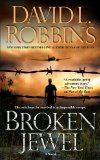Summary | Excerpt | Reading Guide | Reviews | Beyond the book | Read-Alikes | Genres & Themes | Author Bio

From the acclaimed writer Peter Ho Davies comes an engrossing wartime love story set in the stunning landscape of North Wales during the final, harrowing months of World War II.
Young Esther Evans has lived her whole life within the confines of her remote mountain village. The daughter of a fiercely nationalistic sheep farmer, Esther yearns for a taste of the wider world that reaches her only through broadcasts on the BBC. Then, in the wake of D-day, the world comes to her in the form of a German POW camp set up on the outskirts of Esther's village.
The arrival of the Germans in the camp is a source of intense curiosity in the local pub, where Esther pulls pints for both her neighbors and the unwelcome British guards. One summer evening she follows a group of schoolboys to the camp boundary. As the boys heckle the prisoners across the barbed wire fence, one soldier seems to stand apart. He is Karsten Simmering, a German corporal, only eighteen, a young man of tormented conscience struggling to maintain his honor and humanity. To Esther's astonishment, Karsten calls out to her.
These two young people from worlds apart will be drawn into a perilous romance that calls into personal question the meaning of love, family, loyalty, and national identity. The consequences of their relationship resonate through the lives of a vividly imagined cast of characters: the drunken BBC comedian who befriends Esther, Esther's stubborn father, and the resentful young British "evacuee" who lives on the farm -- even the German-Jewish interrogator investigating the most notorious German prisoner in Wales, Rudolf Hess.
Peter Ho Davies has been hailed for his "all-encompassing empathy that is without borders" (Elle). That trancendent compassion shines through The Welsh Girl, a novel that is both thought-provoking and emotionally enthralling.
The Welsh Girl portrays the lives of ordinary people with empathy and insight via a simple plot that leaves ample room to explore its powerful themes. The first of which are the related concepts of nationalism, prejudice and dislocation. The sheep are likely the happiest characters in the book because they are bound by cynefin, a word that apparently has no English equivalent but means a sense of place. From one generation to the next, the sheep know the boundaries of their own land and never stray. Not so the humans. Esther longs to escape the village, but feels a loyalty to the flock and her father; Rotheram is caught between two worlds; Karsten is an outcast from his fellow soldiers; and most of the locals that we meet cannot work out who they are most aggrieved with, the English or the Germans...continued
Full Review
(981 words)
This review is available to non-members for a limited time. For full access,
become a member today.
(Reviewed by BookBrowse Review Team).
This "beyond the book" feature is available to non-members for a limited time. Join today for full access.

If you liked The Welsh Girl, try these:

by Guy Saville
Published 2015
The explosive new thriller of a world that so nearly existed

by David L. Robbins
Published 2010
New York Times bestselling author David L. Robbins presents a riveting novel of war, love, and survival, set against the backdrop of an improbable rescue, the Los Baños prison raid -- one of the most daring episodes of World War II.
A few books well chosen, and well made use of, will be more profitable than a great confused Alexandrian library.
Click Here to find out who said this, as well as discovering other famous literary quotes!